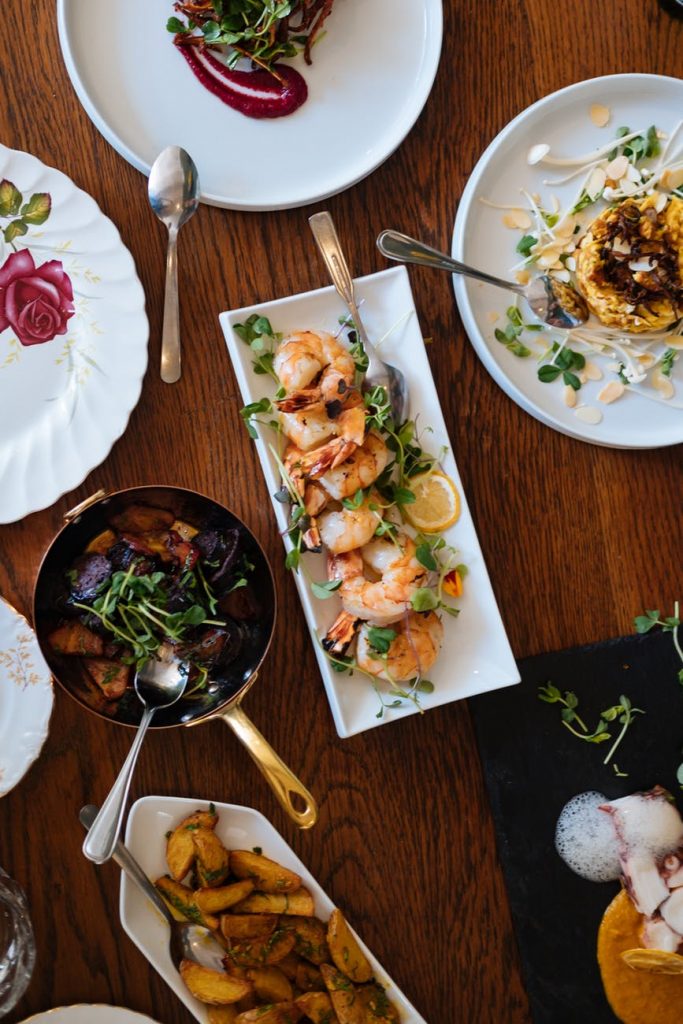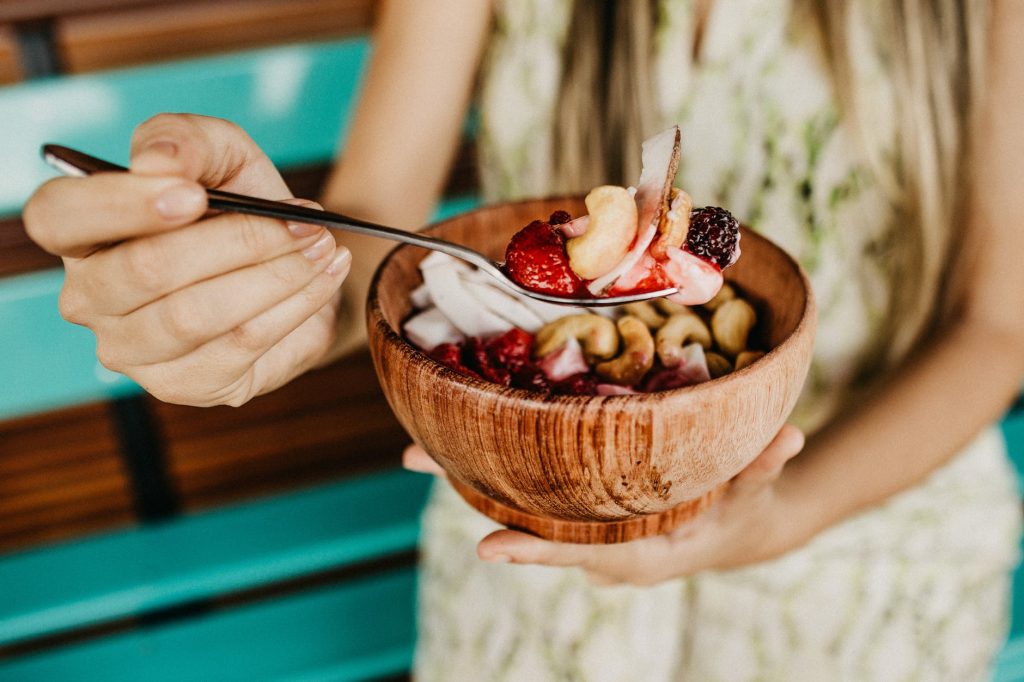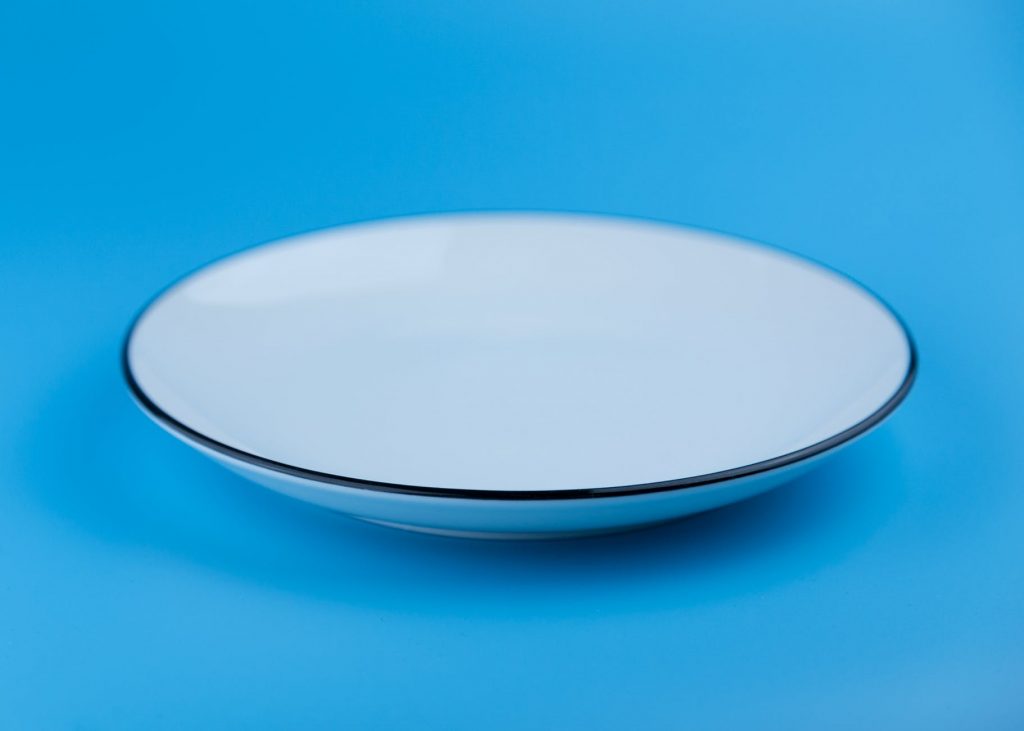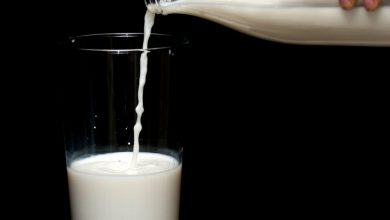
What are the Best Times of Day to Eat for Losing Weight?
If you are trying to cut down on those extra pounds that are settling in around your waistline and making your scale go bonkers, you should be cutting down on your food intake – that’s the common notion we have. Talk to people who are dieting for weight loss, and the chances are that a majority of them describe to you how they have cut down portion sizes or even entire meals so that they can achieve their weight loss goals.
Cut down food, and you cut down weight. That’s such a firmly entrenched belief that we often fail to look beyond this. There are many things wrong with taking this notion at face value without understanding how exactly to implement a food curb in your diet. The two problems that literally beg to be given more attention are these: One, cutting down on the right foods can disrupt your nutritional intake; and two, not having a systematized meal schedule can leave you with little weight loss impact no matter how much you cut down food intake overall.
Take a closer look, and you can see how Problem 1 might actually just be the same as Problem 2, but in a different form. By cutting down food, via reducing portions or cutting down entire meals that you take during the day, you throw your meal schedule off kilter. Say your body is expecting a full breakfast at 9 am, and instead, you just give it a dry toast that is woefully inadequate or skip even that, thus giving it nothing to go on at a time when it is accustomed to a wholesome meal. It throws your body’s entire rhythm off and makes things go haywire.
What is important is for you to know that it is not just the quantity of food you take that impacts your weight but also the time when you have the food.

How does the timing of your meal matter at all?
Your overall calorie count, the amount of food you ingest over a day, is what matters ,right? How does it matter when you actually eat the food? This is quite a common question that many dieters ask. Of course, the overall calories count and the amount of food you eat in the day does matter, but so does the time.
Have you ever had a day when you had to wake up very early to catch a flight or attend a call? If you had your breakfast early that day, say at 7 am instead of your usual 9 am, you might have noticed that at 9, you still have hunger pangs, although you shouldn’t be feeling hungry at all since you have had your breakfast already. Your body is accustomed to eating at this time, and it sends you the signals that will prompt you to eat, as usual. What might happen is that you end up either eating again because you really do have the urge to eat, or you snack on something to get rid of the urge. Either way, you are eating more than one meal in place of the one single meal you would have otherwise at 9.
Think of your body as a well-oiled machine that works perfectly fine as long as it follows its internal clock – the circadian clock. Now, in line with this this clock, the body gears itself up to various activities. As per your daily schedule, your body has already begun to prep for digestion of food and absorption of nutrients right before your usual meal time. It is waiting with all systems at the ready to break down the food. Now, imagine that instead of having one specific time when you eat your food, your meal time varies from day to day. Your body is taken completely unaware when you suddenly start eating. It might be in the middle of any of multiple critical tasks, but when you start eating, it has to switch all focus to digestion.
Remember, it is not geared to do this task at peak performance simply because it was not expecting food at this point at all. As a result, you do not break down the nutrients or absorb them as well as you can. Keep in mind that just the act of digestion requires that the other organs, such as the gut, liver, and pancreas, are also working. If they are busy with other tasks and you load them with the unavoidable task of digestion, they are over worked and less efficient. Over a longer period, this is inevitably going to result in several health issues.
According to a study in which over 5,000 people participated and that spanned an impressive 70 years, those who had irregular meal times were more likely to develop high blood pressure, blood sugar imbalances, high cholesterol in the blood, and a bigger waistline, as well. Apart from these, they were also at higher risk of developing heart diseases and type 2 diabetes. A Harvard study shows that going off-sync with your body’s circadian rhythm can throw your blood sugar levels off and push them up by an alarming 18 percent.
In short, you are compromising on your body’s efficiency by not sticking to a fixed time schedule for your meals. Apart from not utilizing the nutrition in your meals optimally when you eat at odd times, you also disrupt other critical tasks that the body is working on when you force it to switch focus to digestion. Messing up your body’s circadian rhythm has far reaching impact in many areas, such as:
- Body weight regulation
- Metabolic activity
- Sleep cycles
When to eat to lose weight and stay healthy
If eating at random times everyday is not a great idea and it throws your body into unnecessary confusion, then it is important for you to have a fixed slot set aside for your meals. Your lifestyle habits are not the same as anyone else; you may wake up earlier than your sibling or sleep later, so it is difficult to come up with an exact time for each meal for every individual. However, experts have identified the best time slots for each important meal of the day, keeping in mind a weight loss goal. They are as follows:

Breakfast: 6 am to 9:30 am
The very first meal of the day, and also the most important, is your breakfast. A study shows how a protein rich, wholesome breakfast eaten within this time band keeps weight gain under control and also has the bonus benefit of keeping you off snacks for the rest of the day. When you wake up in the morning, your body has fasted all night, and it can definitely use some healthy carbs. That’s exactly why you need to go for something like oatmeal to give the body the basics it needs to produce energy and power you up. Remember that waiting too long after your waking time can result in a dip in blood sugar levels and also heighten your urge to snack on empty carbs.
What you eat for breakfast makes a big difference too. Don’t gulp down coffee and cookies and expect to lose weight or be healthy. What you need is a well rounded, nutritious plate. A protein rich breakfast can be a simple way to have a super energized morning half of the day. A good ground rule is to have at least 25 to 30 grams of protein at each meal you have through the day. To get your protein at breakfast, you have the option of eggs with wheat toast – a simple, quick, and tasty breakfast option that you can prep in minutes without much supervision. Keep in mind that you need about 300 to 500 calories from your breakfast. If you lead an active lifestyle and will be heading out to do strenuous work right after breakfast, push that up to 600 calories, but at no cost do you ignore the protein. It is protein that keeps you feeling satiated until lunch so that you do not go on an all-out binge when you head out at lunch time. Breakfast is the best time for your whole grains as well.
Lunch: 1 pm to 3 pm
Europeans exhibit a lower obesity level than Americans, and their typical lifestyle includes a heavy lunch. Take time to have a sumptuous lunch that is fully satiating so that you can easily do with a light dinner. Of course, you don’t want to overdo any one single meal, so a binge at lunch is definitely not the way to go.
Never put off your lunch beyond 3 pm. According to a study, those who eat later then this tend to lose less weight that those who regularly have lunch before 3. Anywhere between 1 to 3 pm is a good time to have lunch. If you tend to have it later, closer to 3 pm, you may need a morning snack (more about that later) to tide you over from breakfast time until lunchtime.
At lunch, you are going for a maximum of 400 calories. Choose complex carbs so that you feel satiated for a long time and don’t have to snack again until dinner as far as possible. This being the middle of the work day, you need energy to sustain you through the rest of the day.
Again, protein is important, and you should keep your 30 grams of protein rule in mind when choosing what you will have on your lunch menu. Add some healthy fat and plenty of vegetables and fruits so that you get all the vitamins and minerals that your body needs.
Dinner: 6.30 pm to 8 pm
What is imperative to keep in mind is that you don’t eat after 8 pm. Finish your dinner at 7 if possible, at most by 8. Opt for lean protein on your dinner plate. You need whole grains, vegetables, and fruits making up a half of your plate as well. In the US, the tradition is to have your biggest meal at dinner time. While an early dinner ensures that, even if you have a hearty meal, you are not overloading your digestive system too much by going to bed soon after, it is still important to remember that you mustn’t over eat. Avoid sitting down to dinner with a growling stomach because you will tend to eat more than you need to. If necessary, have a later evening snack to take the edge off your hunger pangs so that you can stop after a reasonable sized dinner. Reduce your portion sizes and have a more comprehensive variety of foods at dinner so that you get the whole spread of nutrients, but still keep your overall amount consumed at healthy levels.
Go slightly slow on the carbs at dinner; maybe around 250 to 300 carbs at a maximum should do fine. You don’t want to wake up feeling hungry either, so don’t skimp on that protein because this ensures you feel full for a longer time but not so bloated that you can’t get to sleep. Make sure that you are totally ridding yourself of the post-dinner snacking habit. Studies show that those who quit this cut down more than 200 calories from their daily diet. Plus, you also sleep better, and that helps in weight control as well.
In Between Meal Snacks
If you have had a 400 calorie breakfast and lunch and a 300 calorie dinner, you can still have a couple of 100 calories in the form of snacks. Your meals get digested, the nutrients absorbed anywhere between two to four hours after a meal, so after this window of time, you start to feel hungry again. If there is a long gap between breakfast and lunch or between lunch and dinner, your body may run out of energy and start feeling sluggish. To give it an energy boost and to prevent yourself from going into either of the meals ravenous, you can snack healthily in between the meals.
Space the snack so that you have it about three to four hours after a meal. And also ensure you have healthy foods and not junk. Almonds, soy milk, fruit slices, and cheese are all good snacking options that will give you more nutrition and less carbs for your body to nourish and replenish its resources.

Why skipping meals is not a good weight loss plan
Now that you know why it is important to eat at a specific time every day to get the best weight loss results, it is also imperative for you to know that your body does need a nutritious meal at these times of the day. You cannot afford to skip one of these meals at all in a bid to force your body to consume some extra fats. Why not? Because when you skip a meal, you are also depriving your brain of the fuel it needs to keep powering your body.
More importantly, you push your body into survival mode, and that’s definitely not good for your weight loss plans. In survival mode, your body thinks that you are unable to get food, and so when you do have your next meal, your body is eager to store every bit of it as far as possible, just in case your next meal is not coming on time either.
What happens here in survival mode? Your brain gets into hyper-cortisol mode, with the hormone released instructing your body to store every calorie possible – the exact opposite of what you are trying to do here. The more you skip meals, the more your brain thinks you are not assured of food and so it ‘protects’ you by going into hyper-drive and meticulously safeguarding the calories ‘for a rainy day’.
There’s worse to come. Thanks to your starvation diet idea, your body starts craving carbs and sugars. When you finally sit down to eat, your brain latches onto the sugar, carbs, and fats and makes them taste better so that you have a predilection to have more of those. The cortisol overwhelms your will to avoid fatty substances and empty calories, and as result, you end up having those exact foods that you wanted to cut down on – all because the brain is fooled into thinking that you are actually starving because you cannot get food. It starts saving energy and storing foods that can be converted into energy later on, if you ‘run out’ of food again in the future.
As long as your body and brain are in survival mode, there is very little chance that your weight loss diet will actually work. You need to convince your brain that you are not stuck in the wilderness somewhere with no guarantee for getting your next meal. Instead, you need to convince it that your next meal is very much available right at hand, and right on time. To do that, you need to eat every meal on time, every time!



